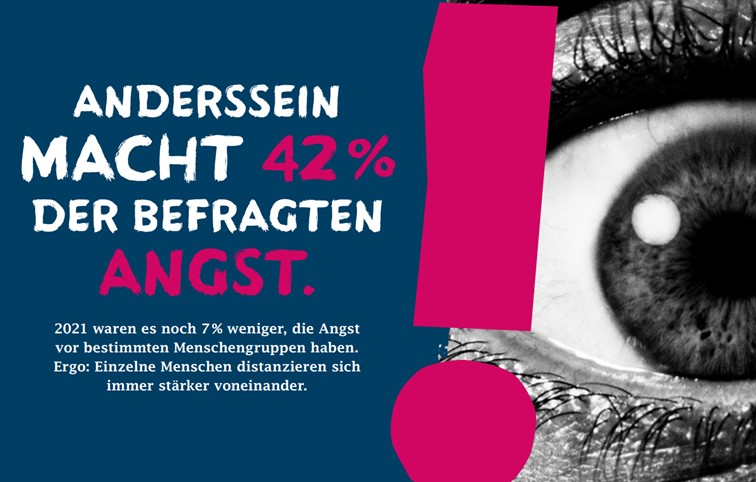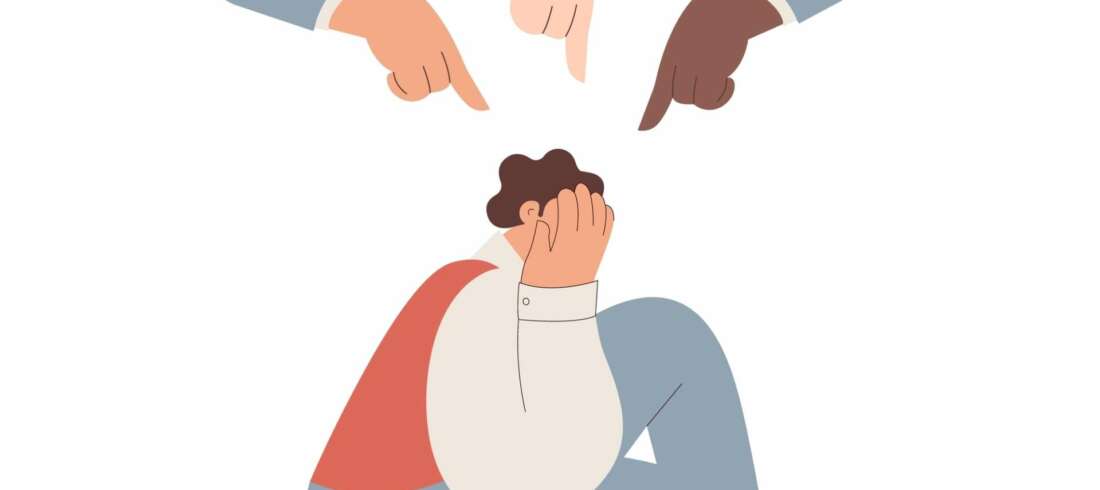In collaboration with the rheingold Institute, IKK classic has presented a new study that looks at the health and social consequences of prejudice and discrimination. The results show that prejudice and discrimination have not only increased since the last IKK classic study. They are also increasingly regarded as "normal".
Under the title "Overcoming prejudice and discrimination - for an open and democratic society", the study takes a comprehensive look at the influence of individual fears and insecurities on the emergence of prejudice, especially in times of crisis. It builds on the 2021 IKK classic study "Prejudice and discrimination make you ill", which focused primarily on the health consequences of prejudice and discrimination for those affected.
Rejection of groups of people on the rise
In response to the question "What do you think: Are prejudice and discrimination a problem in Germany?", 15% of respondents answered that they did not see this as a major problem, compared to just 7% in 2021. This change in sentiment is also reflected in the fact that in 2021, 37% of respondents still thought that discrimination was a major problem for those affected, compared to just 29% in 2024. In addition, 32% believe that their prejudices are justified. In 2021, the figure was six percent lower. The rejection of different groups of people has also increased significantly. While 35% agreed with the question that they were afraid of certain groups of people in 2021, this figure had risen to 42% in 2024.
Fears for the future are greater
According to the study results, the increase in prejudices corresponds with a growing fear of the future in Germany. Only 29% of respondents were confident about the future in 2024, while 78% felt that society is becoming increasingly selfish. The current social change towards individual freedoms and colorful diversity is viewed positively by 38%, while 29% reject it. 50% fear an economic downturn in Germany, while 27% have a negative view of their economic and career prospects for the future.
Individual fears dominate
These results indicate that citizens are heavily burdened by corona, inflation and crises and that individual fears, such as financial worries or personal safety, prevail. Obviously, this means that prejudices in society are increasingly being used without reflection and are also seen as completely "normal".

Prejudices problematic for social context
This development is not only problematic for social cohesion in Germany, but also has health consequences for those affected - this was already shown in the 2021 study "Prejudice and discrimination make you ill" by IKK classic. While 33% of people who do not suffer from discrimination stated that they feel completely healthy, only 10% of people who have experienced discrimination did so. 30 percent of non-discriminated people suffer from sleep disorders, compared to 70 percent of people who have experienced discrimination.
Those affected become depressed more often
There were also clear differences when it came to depression. While 24 percent of people who had not experienced discrimination had experienced depression in the last ten years, 49 percent of those who had. A similar picture emerges for migraines/chronic headaches: 27 percent of people who have been discriminated against are affected, compared to only nine percent of people who have not experienced discrimination.
Further information on the study and offers of help for those affected.
Study design: IKK classic commissioned the rheingold institut to conduct the representative study. A total of 1,897 people took part in the study. The results are representative of the (German-speaking) German population aged 16 and over. Representative distribution of the sample according to: Place of residence (regions), age, gender, approximately representative according to education, household situation, migration background (approx. 27 percent). In addition, 18 two-hour individual interviews were conducted with adults.


